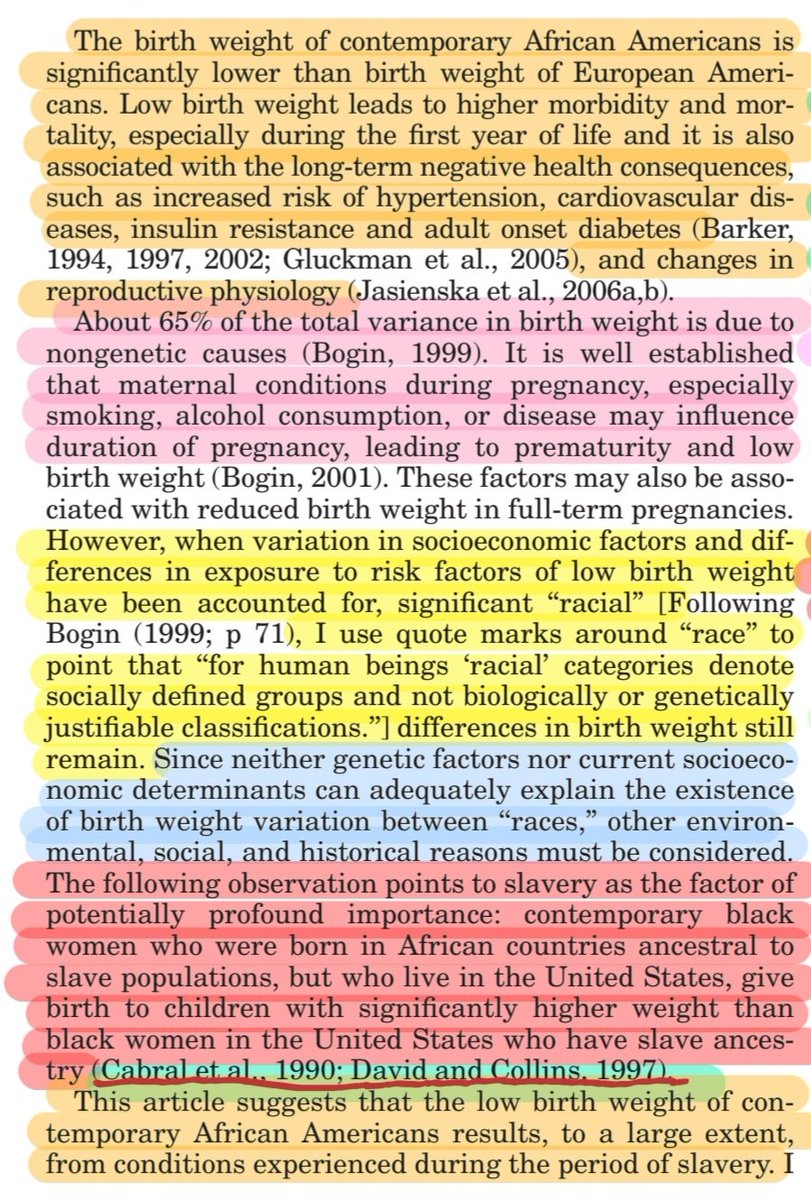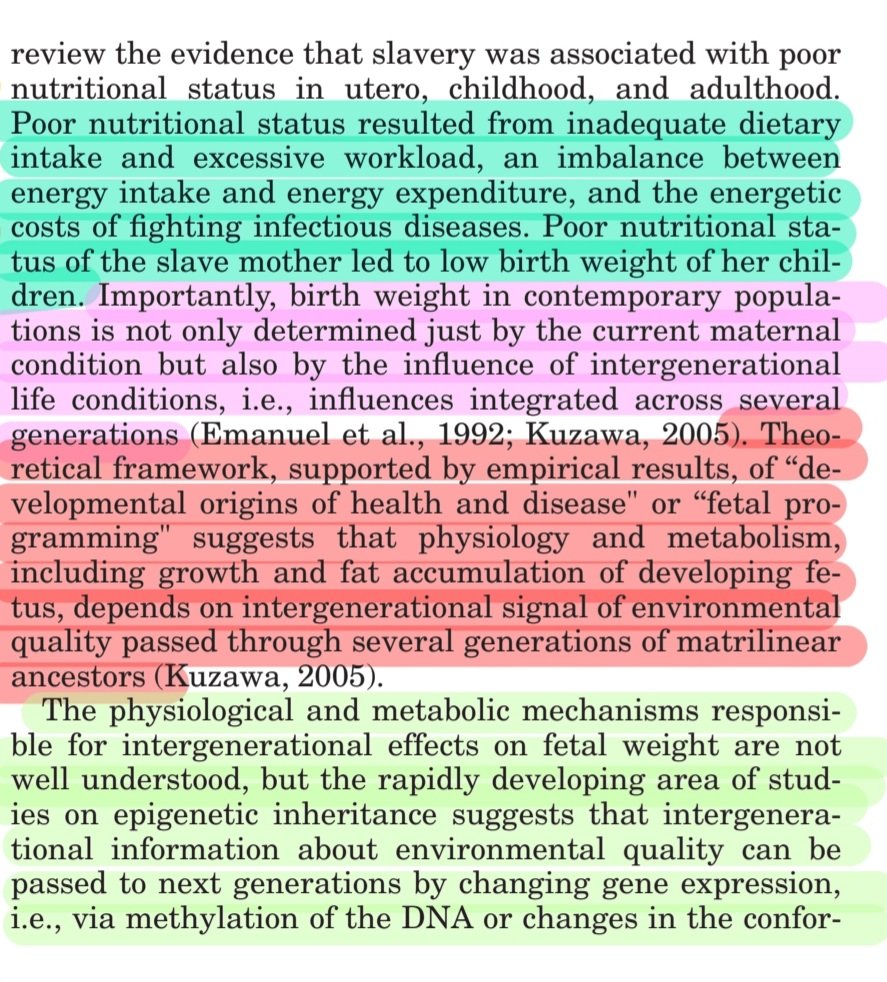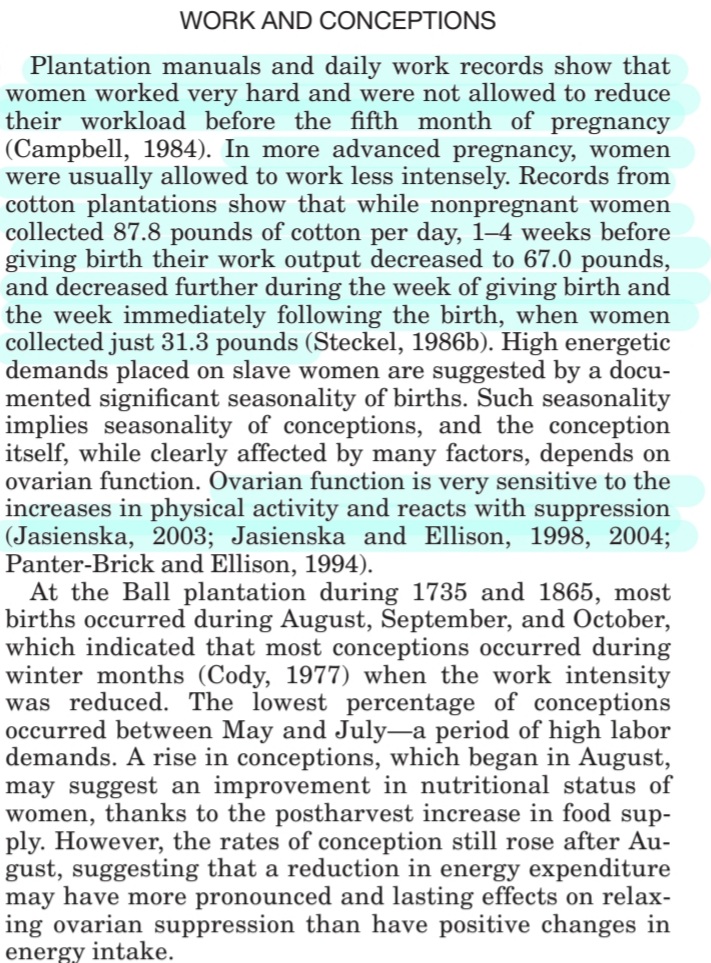
Low birth weight *(bw) leads to higher morbidity and mortality, and is associated with long term health consequences
65% of total variance is due to nongenetic causes
Because of slavery, #ADOS women give birth to children with much lower bw than African women in the US 🧵 1/11
65% of total variance is due to nongenetic causes
Because of slavery, #ADOS women give birth to children with much lower bw than African women in the US 🧵 1/11
https://twitter.com/NonHumanMedia1/status/1486312288164495368

"Importantly, birth weight in contemporary populations is not only determined just by the current maternal condition but also by the influence of intergenerational life conditions, i.e., influences integrated across several generations." 

Both maternal and paternal bw are correlated with their offspring, but the relationship with the mother is stronger
Mixed couples have higher bw than ADOS couples, but lower than whites
Mixed couples with ADOS mothers more often have low bw children than those with ADOS fathers

Mixed couples have higher bw than ADOS couples, but lower than whites
Mixed couples with ADOS mothers more often have low bw children than those with ADOS fathers


#ADOS has a "long, multigenerational history of nutritional deprivation, excessive workloads, and poor health due to years of slavery and the postslavery period of economic hardship"
"Slave children grew more slowly than white children" and "began working at very young ages"

"Slave children grew more slowly than white children" and "began working at very young ages"


"Slave heights recorded at that time suggest that they were growing in poor nutritional and health conditions"
"Slave children more often than white children suffered high rates of diarrhea, neonatal tetanus, convulsions, diphtheria, respiratory diseases, and whooping cough"

"Slave children more often than white children suffered high rates of diarrhea, neonatal tetanus, convulsions, diphtheria, respiratory diseases, and whooping cough"


More than 50% #ADOS women gave birth to their first child between 17 and 21 and were not allowed to reduce their workload before the 5th month of pregnancy
Intense physical labor and malnutrition leads to children with lower bw


Intense physical labor and malnutrition leads to children with lower bw



Caribbean mothers breastfed their babies up to 3 years, as opposed to 1 year for American slaves
However, "sugar plantations were more demanding work than any other type of agriculture" leading Caribbeans today to also suffer from reduced bw due to the effects of slavery

However, "sugar plantations were more demanding work than any other type of agriculture" leading Caribbeans today to also suffer from reduced bw due to the effects of slavery


In a study that only included data for the women with the lowest risk of low bw, the difference between children of African-born black women and white women became less pronounced; however the difference between ADOS infants and white infants did not change at all 

Over the last 50 years the bw of white women has gone up dramatically but not for ADOS women
Studies of other populations show that improving SE mobility can improve bw but also that "the intergenerational component of birth weight is very resistant to nutritional improvement"

Studies of other populations show that improving SE mobility can improve bw but also that "the intergenerational component of birth weight is very resistant to nutritional improvement"


Multigenerational malnutrition and overwork from slavery and Jim Crow has lead ADOS infants to be more likely born with low birth weight which continues to cause health problems throughout the life course of Black Americans 







An alternative explanation for low birth weights is also due to the effects of racism
Although women who self report more discrimination have kids with lower bw than those who report less, studies based on self reported racism has serious methodological limitations
11/11

Although women who self report more discrimination have kids with lower bw than those who report less, studies based on self reported racism has serious methodological limitations
11/11


• • •
Missing some Tweet in this thread? You can try to
force a refresh










